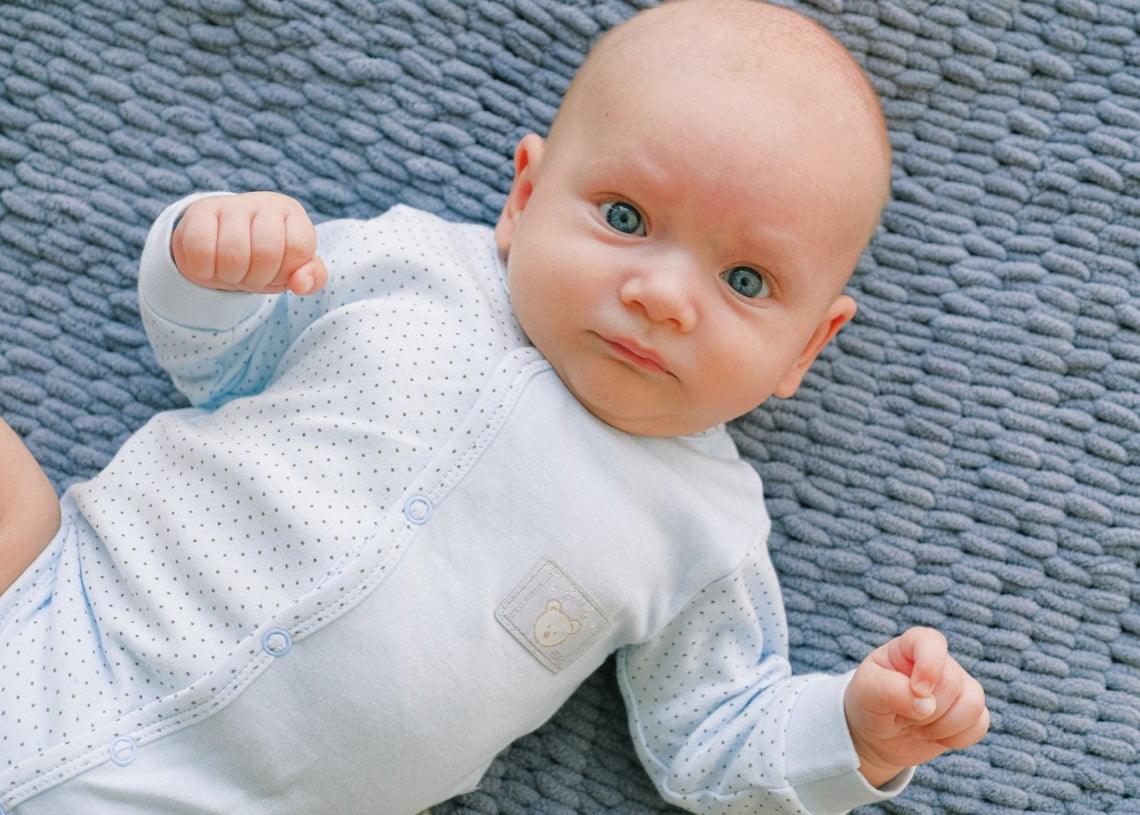You have just become a new parent and as exciting as raising a new baby is, it also has you worrying constantly about whether you are doing a good enough job of taking care of your little human.
But the good news is, newborns have a way of letting you know that they’re doing well. If you know and pay attention to these critical clues, then you can rest assured that your baby is healthy and thriving.
Knowing these signs will also help you to quickly spot when your baby is not feeling well.
In such a case, don’t hesitate to call your pediatrician. Keep reading to find out exactly what signs to look for.
Signs to look for to know that your baby is healthy and thriving
A new baby is a bundle of wonder, and as new parents, it’s only natural to have questions about your little one’s health and development.
Some of the best clues that your newborn is thriving are right before your eyes. We have mentioned these signs below:
Feeding Frequently
If your newborn is demanding to be fed every 2-3 hours, then that is a sign that your baby is healthy and doing well.
Their tiny stomachs can only hold so much, so frequent feedings are normal.
Whether breastfeeding or bottle feeding, make sure to offer your baby plenty of opportunities to eat. Your baby is also going to wet their diapers a lot during this period, which is a good sign.
So make sure to stock up on baby’s essentials like diapers, wet wipes and changing table.
Newborn babies are born with a strong reflex for sucking.
They start developing this reflex in the womb around 32 weeks of pregnancy but is only fully developed during the 36 weeks of pregnancy.
Sucking is also one of the chief mechanisms of pacifying a baby.
If you see that your baby is sucking when something is put near their mouth, then that is a good sign.
It indicates that your baby has a good appetite and a healthy digestive system. In addition, if you notice that your baby is making a gulping sound while feeding, then it means that the baby is eating properly.
This is also a good sign that your baby’s health is on track.
Steady Weight Gain
One of the most reassuring signs is steady weight gain. Typically, newborns lose a bit of weight after birth but gain it back within the first couple of weeks.
After that, expect your baby to pack on about an ounce per day in the first month. Regular weigh-ins and growth charts at checkups will confirm your baby’s progress.
Supporting their own weight for brief moments
Brief moments of head and neck control are also good indicators of healthy development.
When lying on their back, a 1-3 month old newborn should be able to lift and turn their head from side to side.
They may even push up with their arms for a few seconds during tummy time.
These small shows of strength and coordination mean your baby’s motor skills are developing on track.
Making eye contact and smiling
Around 4 to 6 weeks, babies start to smile, make eye contact, and vocalize in response to your smiles and sounds.
Meeting your baby’s gaze, smiling, and talking or singing to them helps strengthen your connection and supports their development.
These first social interactions are signs your newborn’s needs are being met and they are thriving.
Your baby making eye contact with you also plays an important role in early attachment and bonding with their primary caregiver, which in most cases is the mother.
It enables the baby to start associating the food with the feeder, voices and persons, expressions and emotions (i.e., smiling or giggling means happiness).
Developing a Sleep Pattern
In the early days, newborns sleep almost around the clock, waking only to eat. Over the first month, you’ll start to see the beginnings of a pattern emerge, with longer periods of alertness.
That indicates that your baby’s growth is on track. At around 6-8 weeks, babies can stay awake for 2-3 hours at a time and start sleeping for a longer period of time at night.
But also don’t worry if it takes longer for your baby to develop a pattern. Every baby is different!
Soothed by Your Presence
A newborn baby during the first few weeks or even months is going to cry a lot. There is nothing you or anyone can do about it.
But if you see your newborn drifting off to sleep in your arms after eating or while gazing at your face, when you are cuddling them, then it means that your baby finds comfort in your presence, your scent, the sound of your voice, and the warmth of your body.
It is a sign that your baby is developing emotionally and starting to bond with you.
Reacting to sound and colors
An alert, engaged baby is a happy, healthy baby. While newborns sleep a lot, look for periods when your baby is awake and actively taking in the world.
Making eye contact, moving their eyes and head to follow sounds like the sound of the mother’s voice or music, grasping fingers, and looking at moving objects like fan or spinning toy during their waking periods are all signs your newborn’s brain and senses are developing normally.
Your baby’s vision getting better slowly and you will see that they are being drawn to bright colored objects and patterns.
Final Thoughts
While the first few weeks of parenthood can feel overwhelming, keeping an eye on your newborn’s feeding, sleeping, diaper changes and activity levels will give you peace of mind that you’ve got this.
Also don’t forget to take your baby to the pediatrician for regular check-ups.
At each visit, the doctor will carefully track your newborn’s growth and development to ensure they are progressing well, further alleviating your worries.
For now, soak in those sweet new baby snuggles, capture lots of photos and videos, and enjoy this special time as new parents.
The days may feel long but the years are short. You’ve got this!




























